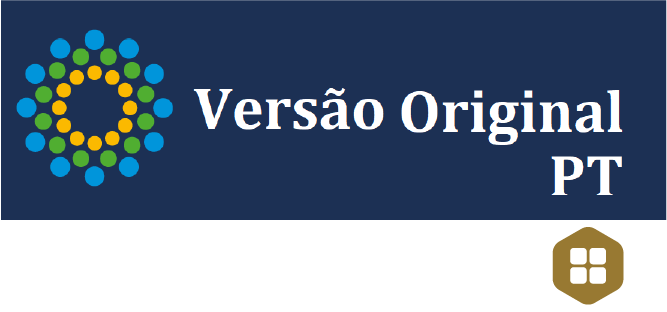Proposta de tipologia de trabalhadores por conta própria considerando o impacto do empreendimento e o engajamento empreendedor
DOI:
10.14211/regepe.esbj.e2549Palavras-chave:
Trabalho por conta própria, Engajamento empreendedor, Impacto do empreendimento, TipologiaResumo
Objetivo do estudo: propor uma tipologia de trabalhador por conta própria (TCP), a partir das dimensões impacto do empreendimento e engajamento empreendedor. Dilema/ problema ou tese: necessita-se compreender os diferentes tipos de trabalhadores por conta própria, uma vez que examiná-los como uma única categoria pode incorrer em limitações para os resultados de um estudo. Relevância/originalidade: como critério para definir as tipologias, foram estabelecidas categorias dicotômicas que auxiliam nas comparações. As categorias foram: formalização (formal ou informal), potencial de inovação (com alto potencial de inovação ou com baixo potencial de inovação), geração de empregos (com empregado ou sem empregado), constância na atividade como TCP (intermitente ou contínuo), conciliação da atividade com outras ocupações profissionais/econômicas (parcial ou integral) e motivação (por oportunidade ou por necessidade). As dimensões adotadas: impacto do empreendimento e engajamento empreendedor foram consideradas para identificação da atividade empreendedora e por serem identificáveis por meio de ações. Foram propostos quatro tipos de trabalhadores por conta própria. O tipo 1 (inovador) possui alto impacto e alto engajamento. O tipo 2 (explorador) tem alto impacto e baixo engajamento. O tipo 3 (convencional) tem baixo impacto e alto engajamento. O tipo 4 (ocasional) tem baixo impacto e baixo engajamento. Contribuições sociais: a tipologia proposta não se trata de determinar os TCPs como sendo ou não empreendedores ou atribuir juízo de valores aos tipos, mas de compreender suas particularidades e atividade empreendedora, possibilitando escolher e justificar teorias do campo do empreendedorismo e eventualmente direcionar ações e políticas adequadas a cada um dos tipos.
Downloads
Traduções deste artigo
Referências
Baumol, W. J. (1996). Entrepreneurship: Productive, unproductive, and destructive. Journal of Business Venturing, 11(1), 3-22. https://doi.org/10.1016/0883-9026(94)00014-X
Block, J., Landgraf, A., & Semrau, T. (2019). The differential impact of societal cultural practices on part-time and full-time self-employment: A multi-level, multi-country study. International Small Business Journal, 37(1), 43-68. https://doi.org/10.1177/0266242618801441
Block, J. H., Fisch, C., & Hirschmann, M. (2022). The determinants of bootstrap financing in crises: evidence from entrepreneurial ventures in the COVID-19 pandemic. Small Business Economics, 58(2), 867-885. https://doi.org/10.1007/s11187-020-00445-6
Bögenhold, D. (2019). From hybrid entrepreneurs to entrepreneurial billionaires: Observations on the socioeconomic heterogeneity of self-employment. American Behavioral Scientist, 63(2), 129-146. https://doi.org/10.1177/0002764218794231
Burke, A., & Cowling, M. (2020). On the critical role of freelancers in agile economies. Small Business Economics, 55(2), 393-398. https://doi.org/10.1007/s11187-019-00240-y
Caliendo, M., Goethner, M., & Weißenberger, M. (2020). Entrepreneurial persistence beyond survival: Measurement and determinants. Journal of Small Business Management, v. 58(3), 617-647. https://doi.org/10.1080/00472778.2019.1666532
Carree, M. A., & Thurik, A. R. (2008). The lag structure of the impact of business ownership on economic performance in OECD countries. Small Business Economics, 30, 101-110. https://doi.org/10.1007/s11187-006-9007-0
Clarivate, (2022). KeyWords Plus generation, creation, and changes. https://support.clarivate.com/ScientificandAcademicResearch/s/article/KeyWords-Plus-generation-creation-and-changes?language=en_US
Colbari, A. L. (2015). Do autoemprego ao microempreendedorismo individual: desafios conceituais e empíricos. Revista Interdisciplinar de Gestão Social, 4(1). https://doi.org/10.9771/23172428rigs.v4i1.10909
Cornelissen, J. (2017). Editor’s comments: Developing propositions, a process model, or a typology? Addressing the challenges of writing theory without a boilerplate. Academy of Management Review, 42(1), 1-9. https://doi.org/10.5465/amr.2016.0196
Cumming, D., Johan, S., & Zhang, M. (2013). The economic impact of entrepreneurship: Comparing international datasets. Corporate Governance: An International Review, 22(2), 162-178. https://doi.org/10.1111/corg.12058
De Vries, N., Liebregts, W., & Van Stel, A. (2020). Explaining entrepreneurial performance of solo self-employed from a motivational perspective. Small Business Economics, 55(2), 447-460. https://doi.org/10.1007/s11187-019-00244-8
D’Amours, M., & Crespo, S. (2004). Les dimensions de l’hétérogénéité de la catégorie de travailleur indépendant sans employé: éléments pour une typologie. Relations Industrielles, 59(3), 459-489. https://doi.org/10.7202/010921ar
Fossen, F.M. (2021). Self-employment over the business cycle in the USA: a decomposition. Small Business Economics, 57(4), 1837-1855. https://doi.org/10.1007/s11187-020-00375-3
Ganser-Stickler, G.M., Schulz, M., & Schwens, C. (2022). Sitting on the fence-Untangling the role of uncertainty in entrepreneurship and paid employment for hybrid entry. Journal of Business Venturing, 37(2), 106176. https://doi.org/10.1016/j.jbusvent.2021.106176
Global Entrepreneurship Monitor. GEM. (2023). Global Entrepreneurship Monitor 2023/2024 Global Report: 25 Years and Growing. London: GEM. Recuperado em 02 de abril de 2024, de: https://www.gemconsortium.org/report/global-entrepreneurship-monitor-gem-20232024-global-report-25-years-and-growing
Gindling, T. H., Mossaad, N., & Newhouse, D. (2020). Self-employment earnings premiums/penalties and regulations: evidence from developing economies. Small Business Economics, 55(2), 507-527. https://doi.org/10.1007/s11187-019-00248-4
Gonçalves, J., & Martins, P. S. (2021). Effects of self-employment on hospitalizations: instrumental variables analysis of social security data. Small Business Economics, 57(3), 1527-1543. https://doi.org/10.1007/s11187-020-00360-w
Grilo, I., & Thurik, R. (2005). Entrepreneurial engagement levels in the European Union. International Journal of Entrepreneurship Education, 3(2), 143-168. http://hdl.handle.net/1765/15798
Henríquez-Daza, M. C., Capelleras, J. L., & Osorio-Tinoco, F. (2019). Entrepreneurial Engagement and Growth Aspirations: The Moderating Role of Opportunity Perception. International Review of Entrepreneurship, 17(2). http://hdl.handle.net/2262/104715
Hessels, J., Rietveld, C. A., & Van Der Zwan, P. (2017). Self-employment and work-related stress: The mediating role of job control and job demand. Journal of Business Venturing, 32(2), 178-196. https://doi.org/10.1016/j.jbusvent.2016.10.007
Hessels, J., Grilo, I., Thurik, R., & Van Der Zwan, P. (2011). Entrepreneurial exit and entrepreneurial engagement. Journal of Evolutionary Economics, 21, 447-471. https://doi.org/10.1007/s00191-010-0190-4
Instituto Brasileiro de Geografia e Estatística. IBGE. (2023). Pesquisa Nacional por Amostra de Domicílios Contínua: Notas Técnicas – Versão 1.12. Recuperado em 15 de abril de 2024, de: https://biblioteca.ibge.gov.br/visualizacao/livros/liv101999_notas_tecnicas.pdf
Jones, S., & Nadin, S. (2024). “I’d like to make a proper go of it but it’s really scary”: the perpetual liminality of informally self-employed women as stigmatized entrepreneurs. Entrepreneurship & Regional Development, 1-18. https://doi.org/10.1080/08985626.2024.2425945
Kahn, W. A. (1990). Psychological conditions of personal engagement and disengagement at work. Academy of Management Journal, 33(4), 692-724. https://journals.aom.org/doi/abs/10.5465/256287
Kalenkoski, C. M., & Pabilonia, S. W. (2022). Impacts of COVID-19 on the self-employed. Small Business Economics, 58(2), 741-768. https://doi.org/10.1007/s11187-021-00522-4
Koch, M., Park, S., & Zahra, S. A. (2021). Career patterns in self-employment and career success. Journal of Business Venturing, 36(1), 105998. https://doi.org/10.1016/j.jbusvent.2019.105998
Kwon, I., & Sohn, K. (2021). Trust or distrust: entrepreneurs vs. self-employed. Small Business Economics, 56(4), 1553-1570. https://doi.org/10.1007/s11187-019-00278-y
La Porta, R., & Shleifer, A. (2014). Informality and development. Journal of Economic Perspectives, 28(3), 109-126. http://dx.doi.org/10.1257/jep.28.3.109
Laguna, M., Razmus, W., & Zalinski, A. (2017). Dynamic relationships between personal resources and work engagement in entrepreneurs. Journal of Occupational and Organizational Psychology, 90(2), 248-269. https://doi.org/10.1111/joop.12170
Laing, E., Van Stel, A., & Storey, D. J. (2022). Formal and informal entrepreneurship: a cross-country policy perspective. Small Business Economics, 10, 8-8. https://doi.org/10.1007/s11187-021-00548-8
Lozares, C. (1990). La tipología en sociología, más allá de la simple taxonomía: conceptualización y cálculo. Revista de Sociologia, 139-163. https://doi.org/10.5565/rev/papers/v34n0.1564
Magnan, E. S., Vazquez, A. C. S., Pacico, J. C., & Hutz, C. S. (2016). Normatização da versão brasileira da Escala Utrecht de engajamento no trabalho. Avaliação Psicológica: Interamerican Journal of Psychological Assessment, 15(2), 133-140. https://doi.org/10.15689/ap.2016.1502.01
Martiarena, A. (2019). Re-examining the opportunity pull and necessity push debate: Contexts and abilities. Entrepreneurship & Regional Development, 32(7-8), 531-554. https://doi.org/10.1080/08985626.2019.1675776
Martinez, C., & Bryant, P. T. (2014). What keeps entrepreneurs entrepreneurial? A regulatory focus theory of entrepreneurial persistence. In: Academy of Management Proceedings. Briarcliff Manor, NY 10510: Academy of Management, 14802. https://doi.org/10.5465/ambpp.2014.14802abstract
Martinez, C., & Bryant, P. T. (2017). The Psychological Origins of Entrepreneurial Life Path Engagement and Persistence. In: Academy of Management Proceedings. Briarcliff Manor, NY 10510: Academy of Management, 11384. https://doi.org/10.5465/AMBPP.2017.11384abstract
McKinney, J. C. (1968). Tipología constructiva y teoría social. Editora: Amorrortu.
McMullen, J. S., Bagby, D. R., Palich, L. E. (2008). Economic freedom and the motivation to engage in entrepreneurial action. Entrepreneurship Theory and Practice, 32(5), 875-895. https://doi.org/10.1111/j.1540-6520.2008.00260x
Morris, M. H., Neumeyer, X., & Kuratko, D. F. (2015). A portfolio perspective on entrepreneurship and economic development. Small Business Economics, 45, 713-728. https://doi.org/10.1007/s11187-015-9678-5
Morris, M. H., Neumeyer, X., Jang, Y., Kuratko, D. F. (2018). Distinguishing types of entrepreneurial ventures: An identity‐based perspective. Journal of Small Business Management, 56(3), 453-474. https://doi.org/10.1111/jsbm.12272
Nikolova, M., Nikolaev, B., & Boudreaux, C. (2023). Being your own boss and bossing others: The moderating effect of managing others on work meaning and autonomy for the self-employed and employees. Small Business Economics, 60(2), 463-483. https://doi.org/10.1007/s11187-021-00597-z
Obschonka, M., Pavez, I., Kautonen, T., Kibler, E., Salmela-Aro, K., & Wincent, J. (2023). Job burnout and work engagement in entrepreneurs: How the psychological utility of entrepreneurship drives healthy engagement. Journal of Business Venturing, 38(2), 106272. https://doi.org/10.1016/j.jbusvent.2022.106272
Patel, P.C., & Ganzach, Y. (2019). Returns to balance in cognitive skills for the self-employed: evidence from 18 countries. Small Business Economics, 52(1), 89-109. https://doi.org/10.1007/s11187-018-0018-4
Patel, P.C., & Wolfe, M.T. (2021). Under pressure: the effect of antioxidants on health consequences related to oxidative stress. Entrepreneurship Theory and Practice, 45(1), 211-241. https://doi.org/10.1177/1042258720964184
Prandi, J.R. (1976). O Trabalhador por conta própria sob o Capital. São Paulo: Símbolo.
Ribas, R. P. (2020). Liquidity constraints, spillovers, and entrepreneurship: evidence from a cash transfer program. Small Business Economics, 55(4),1131-1158. https://doi.org/10.1007/s11187-019-00178-1
Roldán, P. L. (1996). La construcción de tipologías: metodología de análisis. Revista de Sociologia, 9-29. https://doi.org/10.5565/rev/papers.1811
Sarkar, S., Rufín, C., & Haughton, J. (2018). Inequality and entrepreneurial thresholds. Journal of Business Venturing, 33(3), 278-295. https://doi.org/10.1016/j.jbusvent.2017.12.009
Schaufeli, W. B., Salanova, M., González-Romá, V. & Bakker, A. (2002). The measurement of engagement and burnout: A two sample confirmatory factor analytic approach. Journal of Happiness Studies, 3, 71-92. https://doi.org/10.1023/A:1015630930326
Skrzek-Lubasińska, M., & Szaban, J. M. (2019). Nomenclature and harmonised criteria for the self-employment categorisation. An approach pursuant to a systematic review of the literature. European Management Journal, 37(3), 376-386. https://doi.org/10.1016/j.emj.2018.11.001
Sorgner, A., Fritsch, M.; & Kritikos, A. (2017). Do entrepreneurs really earn less? Small Business Economics, 49(2), 251-272. https://doi.org/10.1007/s11187-017-9874-6
Swedberg, R. (2018). How to use Max Weber’s ideal type in sociological analysis. Journal of Classical Sociology, 18(3), 181-196. https://doi.org/10.1177/1468795X17743643
Szaban, J., & Skrzek-Lubasińska, M. (2018). Self-employment and entrepreneurship: A theoretical approach. Journal of Management and Business Administration. Central Europe, 26(2), 89-120. https://doi.org/10.7206/jmba.ce.2450-7814.230
Uriarte, S., Mandakovic, V., & Amorós, J. E. (2024). Hybrid entrepreneurs: The value of experience. Journal of Small Business Management, 62(6), 2935-2964. https://doi.org/10.1080/00472778.2023.2284911
van Praag, C. M., & Versloot, P. H. (2007). What is the value of entrepreneurship? A review of recent research. Small Business Economics, 29(4), 351-382. https://doi.org/10.1007/s11187-007-9074-x
van Riel, R. (2021). Weberian ideal type construction as concept replacement. European Journal of Philosophy, 30(4), 1358-1377. https://doi.org/10.1111/ejop.12752
Vladasel, T., Lindquist, M. J., Sol, J., Van Praag, M. (2021). On the origins of entrepreneurship: Evidence from sibling correlations. Journal of Business Venturing, 36(5), 106017. https://doi.org/10.1016/j.jbusvent.2020.106017
Weber, M. (2008). Ensaios sobre a teoria das ciências sociais. Tradução de Rubens Eduardo Frias. 3ª edição – São Paulo.

Publicado
Métricas
Visualizações do artigo: 2022 PDF downloads: 238 Áudio downloads: 31 Vídeo downloads: 55 XML downloads: 0 Pareceres downloads: 68
Como Citar
Edição
Seção
Licença
Copyright (c) 2025 Jéssica Borges de Carvalho, Cândido Borges

Este trabalho está licenciado sob uma licença Creative Commons Attribution 4.0 International License.
Autores que publicam nesta revista concordam com os seguintes termos:
- O(s)/A(s) autor(es)/autora(s) autorizam a publicação do texto na revista;
- A revista não se responsabiliza pelas opiniões, ideias e conceitos emitidos nos textos, por serem de inteira responsabilidade de seus autores/autoras;
- Autores/autoras mantêm os direitos autorais e concedem à revista o direito de primeira publicação, com o trabalho publicado sob a Licença CC BY 4.0
, que permite o compartilhamento do trabalho com reconhecimento da autoria e publicação inicial nesta revista;
- Autores/autoras são permitidos e encorajados a postar seu trabalho (Versão submetida, Versão aceita [Manuscrito aceito pelo autor/autora] ou Versão publicada [Versão do registro]) online, por exemplo, em repositórios institucionais ou preprints, pois isso pode levar a trocas produtivas, bem como a citações anteriores e maiores de trabalhos publicados. A REGEPE pede como condição política para os autores/autoras que indiquem/vinculem o artigo publicado com DOI. Veja o Efeito do Acesso Livre.
Declaração de dados
-
Os dados de pesquisa estão contidos no próprio manuscrito















